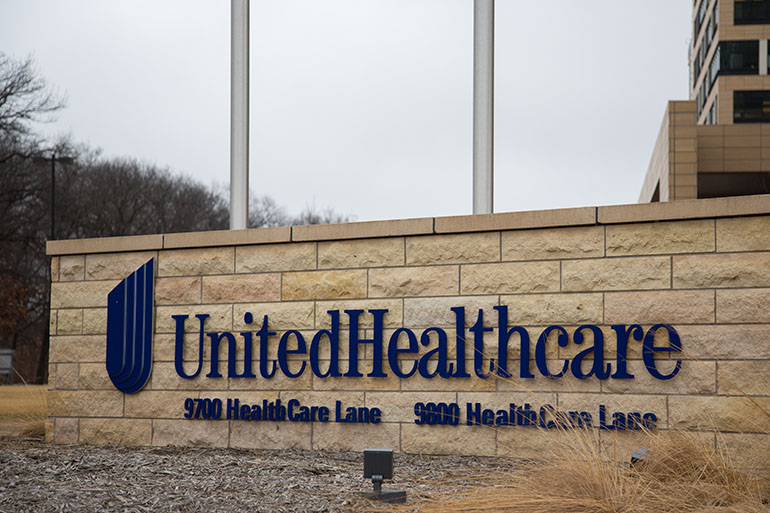UnitedHealth Group Inc. is leaving California’s insurance exchange at the end of this year, state officials confirmed Tuesday.
The nation’s largest health insurer announced in April it was dropping out of all but a handful of 34 health insurance marketplaces it participated in. But the company had not discussed its plans in California.
UnitedHealth’s pullout also affects the individual market outside the Covered California exchange. Existing policies will remain in effect until the end of December.
“United is pulling out of California’s individual market including Covered California in 2017,” said Amy Palmer, a spokeswoman for the state exchange.
It’s expected that UnitedHealth will continue offering coverage to employers in California and to government workers and their families through the California Public Employees’ Retirement System.
Representatives of UnitedHealth didn’t immediately respond to a request for comment Tuesday. In April, UnitedHealth’s Chief Executive Stephen Hemsley said the company was unwilling to keep losing money on the exchange business overall.
“The smaller overall market size and shorter term, higher-risk profile within this market segment continue to suggest we cannot broadly serve it on an effective and sustained basis,” Hemsley said in a conference call with investors in April.
UnitedHealth just joined the California exchange this year, and it only has about 1,200 enrollees so the immediate impact on consumers is minimal. The company didn’t have any individual policyholders outside the exchange as of April 27, according to the California Department of Managed Health Care.
Now critics of the Affordable Care Act are sure to seize on UnitedHealth’s exit from a high-profile state as further evidence the health-law insurance exchanges aren’t sustainable financially and that premiums will rise even higher for consumers.
The Obama administration has countered that the number of health plans offering exchange policies has increased since the 2014 launch, and that it expects the individual market will continue to stabilize as adjustments are made.
California officials until now had expressed optimism that UnitedHealth would stick it out in the nation’s largest state, where about 1.4 million people are enrolled in the insurance exchange. Unlike in other states, big insurers in California have reported profits selling on the state marketplace thanks to one of the healthiest risk pools in the country.
Health insurers have cited that strong enrollment as a main reason for lower-than-average rates increases in California the past two years.
In addition, many consumer groups had welcomed UnitedHealth’s arrival in Covered California in order to give people more choice and inject more competition into the market. The top four insurers in the exchange, led by Blue Shield of California and Anthem Inc., control more than 90 percent of Covered California enrollment.
Katherine Hempstead, who studies health insurance issues at the Robert Wood Johnson Foundation, said she had thought UnitedHealth would find California too attractive to pass up.
“The handful of ‘maybe’ states United identified at the beginning of this saga made it appear that they might have a preference for states with more stable and mature individual markets,” Hempstead said. “But the recent exit from New Jersey followed by this announcement about California has basically extinguished that line of thought.”
Palmer said UnitedHealth policyholders will know their options for 2017 coverage when health plans and rates for next year are announced in July.
The state exchange had limited UnitedHealth to selling exchange plans in several smaller markets for 2016 because it didn’t participate the first two years. Those areas are predominantly rural counties in Northern California, but they also include Santa Barbara, Ventura and San Luis Obispo counties.
In February, Covered California’s executive director, Peter Lee, criticized UnitedHealth for blaming the federal health law for its heavy losses instead of taking responsibility for its own business mistakes.
Lee said UnitedHealth made a series of blunders on rates and networks that led to steep losses on individual policies across the country.
“Instead of saying, ‘We screwed up,’ they said, ‘Obamacare is the problem and we may not play anymore,'” Lee said in a February interview with California Healthline. “It was giving an excuse to Wall Street and throwing the Affordable Care Act under the bus.”
In April, UnitedHealth said it had nearly 800,000 enrollees on exchange plans across the country. It expected that number to fall to about 650,000 by December as people drop off coverage or find other insurance.
New York and Nevada have said that UnitedHealth will participate in the individual markets there and the company has filed plans to sell similar plans in Virginia.


